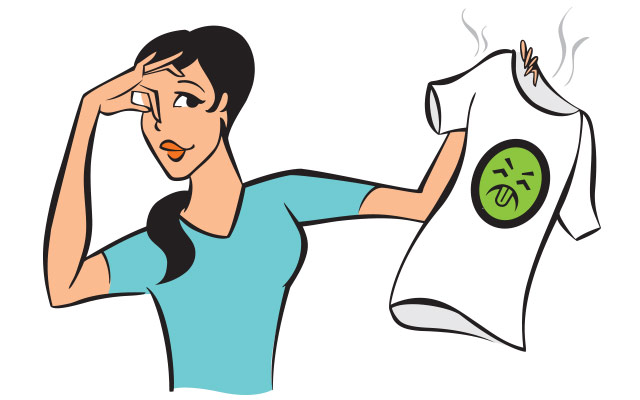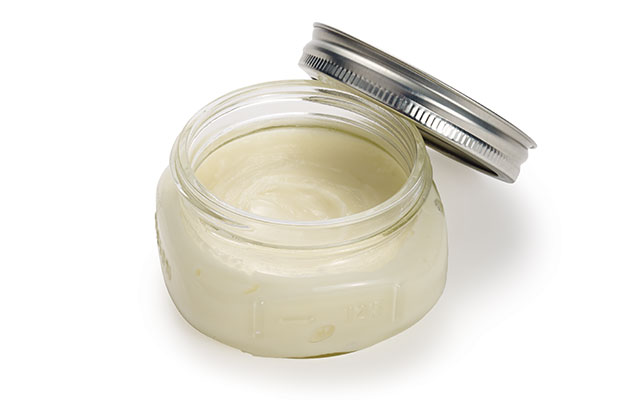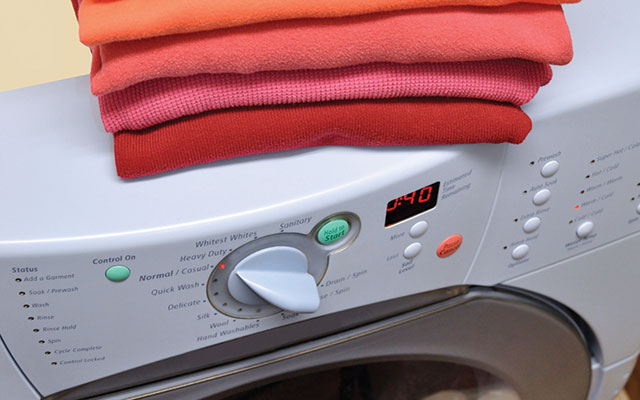Anti-odor apparel is engineered to smell fresh even after the most strenuous workout. But such clothing can pose problems for your health and the environment.
Antimicrobial apparel is commonly made with silver nanoparticles that prevent odor-causing bacteria. But these tiny particles can be absorbed through our skin, according to a 2013 Environmental Science & Technology study. And while the effects of silver on human health are unclear, research has found it can be toxic to aquatic life. Sweden has opted to label it a possible genetic- and reproductive-health risk.
The controversial chemical triclosan, which can degrade into cancer-causing dioxin when exposed to sunlight, is also used in some antimicrobial shoes and undergarments.
And the expense and risks of anti-odor gear may not pay off in great functional benefits, according to a 2009 Swiss study: After just two cycles in the washing machine, antimicrobial fabrics can lose up to 35 percent of their silver nanoparticles, which then wash down the drain and pollute our waterways.
Protect yourself and the environment by opting for textiles that naturally fight odor, including wool and bamboo.
Or freshen your gym clothes by adding a cup of white vinegar to your washing machine’s rinse cycle and hanging them outside to dry. Sun and fresh air are great natural deodorizers.




This Post Has 0 Comments